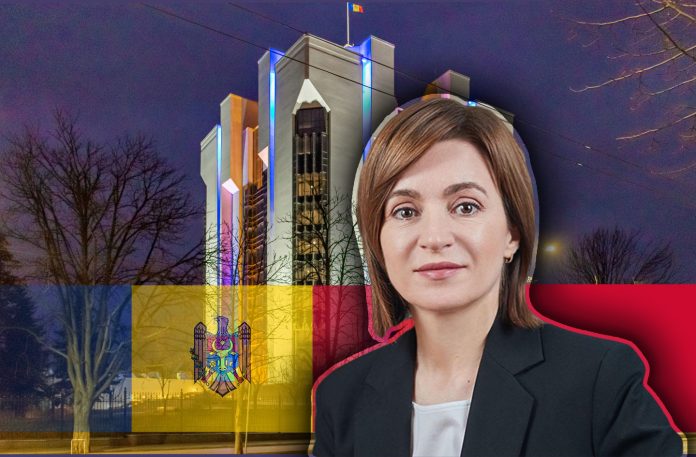The Supreme Security Council (SSC) convened on Tuesday, January 14, to address pressing issues such as Russian blackmail, the ongoing energy crisis in Transnistria, and government initiatives to support citizens. Other potential assistance programs for Moldovans were also discussed during the several-hour session.
At the start of the conference, President Maia Sandu emphasized that the energy crisis in Transnistria stems from Gazprom’s refusal to deliver natural gas to the left bank despite existing contractual obligations. She underlined, “Tiraspol does not decide whether to accept or refuse aid. Kremlin orchestrated this irrational refusal.”
President Sandu detailed the discussions regarding the energy supply on both the right and left banks of the Dniester. On the right bank, she noted that nearly half of the electricity is generated internally, including a significant increase in renewable energy capacity in recent years. Imports from Romania cover the remaining needs. She expressed gratitude to citizens and businesses for heeding the government’s call to conserve electricity, explaining that lower consumption leads to better prices, particularly during peak hours.
For the 12 localities under Moldova’s constitutional authority but connected to left-bank networks, actions are underway to connect them to the right-bank gas and electricity grids. While electricity connections require less time, gas infrastructure upgrades may take several months. Sandu stressed the importance of these measures to ensure energy independence.
FOR THE MOST IMPORTANT NEWS, FOLLOW US ON TWITTER!
The president highlighted the need for continued investment in renewable energy. Since 2021, renewable capacity in Moldova has grown from 170 MW to 600 MW in 2024. Upcoming tenders for 165 MW of additional capacity are expected to conclude by March. Sandu also underscored the significance of completing the Chisinau-Vulcanesti high-voltage line by the end of 2025, a critical step for energy security.
Sandu called on the government to enhance public awareness and increase energy voucher programs to help vulnerable households reduce energy costs. She also urged the government to streamline the approval processes for large-scale energy efficiency projects to expedite implementation.
The government plans to compensate up to 50% of energy expenses for approximately one-third of the most affected producers, whose energy costs constitute a significant portion of their expenditures. This measure aims to help businesses weather the crisis and maintain stability. Additionally, Sandu encouraged investments in technology upgrades to optimize energy consumption and costs across various industries.
For households, approximately 680,000 families are already benefiting from compensation programs for gas, electricity, and thermal energy costs, with a budget of 2.9 billion lei allocated for the season. The president assured citizens that all efforts are being made to ease the burden of the energy crisis.
President Sandu reiterated that Russia is using energy blackmail to destabilize Moldova, influence the 2025 parliamentary elections, and undermine the country’s European integration efforts. Moldova has been in an emergency since December 16, 2024, due to Gazprom’s failure to honor its natural gas delivery commitments to left-bank consumers.


